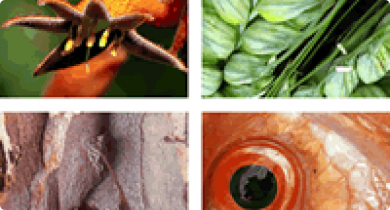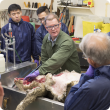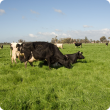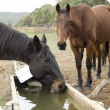Biosecurity
Biosecurity is fundamental for safeguarding our valuable agricultural resources against the threat and impacts of pests, weeds and diseases (pests).
Biosecurity is the management of the risk of animal and plant pests and diseases entering, emerging, establishing or spreading in Western Australia, to protect our economy, environment and the community.
To protect Western Australian agricultural industries from pests the Department of Agriculture and Food, Western Australia:
- Works with stakeholders to identify and manage biosecurity risks.
- Develops legislation.
- Establishes import controls.
- Conducts inspections.
- Provides quarantine services as required.
To find out more about what we do to protect agricultural production and export opportunities within the State please search our website.
Filter by search
Filter by topic
- Livestock health & diseases (69) Apply Livestock health & diseases filter
- Pests, weeds & diseases (69) Apply Pests, weeds & diseases filter
- Livestock & animals (69) Apply Livestock & animals filter
- Diseases (69) Apply Diseases filter
- (-) Remove Livestock disease surveillance filter Livestock disease surveillance
- (-) Remove Livestock species filter Livestock species
- (-) Remove Livestock biosecurity filter Livestock biosecurity
- Sheep (30) Apply Sheep filter
- Beef cattle (21) Apply Beef cattle filter
- Livestock management (20) Apply Livestock management filter
- Emergency animal disease preparedness (19) Apply Emergency animal disease preparedness filter
- Dairy cattle (17) Apply Dairy cattle filter
- Poultry & birds (12) Apply Poultry & birds filter
- Pigs (11) Apply Pigs filter
- Management & reproduction (10) Apply Management & reproduction filter
- Goats (9) Apply Goats filter
- Horses (7) Apply Horses filter
- Livestock movement & identification (5) Apply Livestock movement & identification filter
- Feeding & nutrition (4) Apply Feeding & nutrition filter
- Wildlife biosecurity (3) Apply Wildlife biosecurity filter
- Food, export & investment (2) Apply Food, export & investment filter
- Emergency response (2) Apply Emergency response filter
- Control methods (2) Apply Control methods filter
- Chemicals (2) Apply Chemicals filter
- Quarantine (1) Apply Quarantine filter
- Residues in livestock (1) Apply Residues in livestock filter
- Stockfeed (1) Apply Stockfeed filter
- Preventing residues (1) Apply Preventing residues filter
- Veterinary chemicals (1) Apply Veterinary chemicals filter
- Biosecurity governance (1) Apply Biosecurity governance filter
- Biosecurity and Agriculture Management Act (1) Apply Biosecurity and Agriculture Management Act filter
- Export services (1) Apply Export services filter
- Importing animals (1) Apply Importing animals filter
- Importing to Western Australia (1) Apply Importing to Western Australia filter




